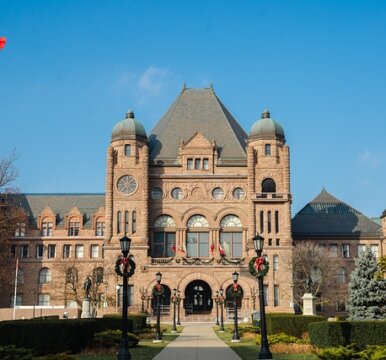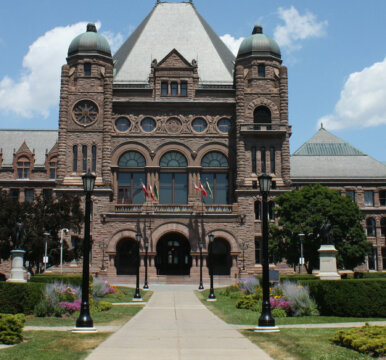Earlier this month in Ottawa, we saw the second reading debate for Conservative MP, Marty Morantz’s bill C-240, An Act to amend the Income Tax Act (donations involving private corporation shares or real estate) take place in the House of Commons. While the bill did not pass the second reading, an interesting debate about the charitable sector took place. The bill was introduced as a potential new revenue stream for the sector in light of the challenges imposed by the COVID-19 pandemic. In essence, the bill would, if it had passed, exempt real estate and private corporation shares from capital gains tax when the proceeds are donated to charity.
In introducing the bill, the sponsor noted that “The bottom line is that when charities are hurting, people are hurting. Let us all work together in the spirit of giving and help people by supporting the charitable sector”. In further debate from Conservative Party benches, it was noted that according to the Parliamentary Budget Report, for every $1 of tax forgone by this bill, $1.26 would be donated to charity. They also referenced the history of this policy, noting that the measure was proposed in the 2015 budget under the previous Conservative government.
Liberal commentary on the bill noted a general support for the intent, however called it both “problematic” and “regressive”, with Bryan May, the Liberal MP for Cambridge noting “The proposed measure could in fact result in a windfall gain to donors without actually increasing the amount of their charitable giving to charities. That is because donors could simply substitute their existing cash donations to charities with donations of private corporation shares and real estate in order to receive greater tax benefits.” Liberal commentary also noted that this bill would undermine the effectiveness of the ecological gift program, which provides incentives to donate sensitive land such as wetlands. Ultimately all but two votes from the Liberal benches were against the bill.
Looking across the aisle of the House of Commons to the NDP, the bill did not find support, with Rachel Blaney, the MP for North Island-Powell River noting that “Although charitable organizations perform valuable work, they are a poor replacement for adequately taxing the rich and can reduce tax revenues by more than they distribute. We need to look at this critically.” The NDP also highlighted that this measure would “really allow the wealthy of this country more control of where their tax dollars end up while requiring other Canadians to make up the difference of that tax bill.”
The bottom line is that when charities are hurting, people are hurting. Let us all work together in the spirit of giving and help people by supporting the charitable sector
The Bloc Québécois expressed support for the principal behind the bill, and more broadly, the charitable sector. However, they did stress that “better social policies and an adequate response to the problems of an aging population must be implemented in conjunction with the modernization of our tax system for charities.” Ultimately their MPs expressed support for the bill, and all voted in favour, but noted that it needed to be examined at committee for “effectiveness and fairness”. The Bloc MP for Abitibi—Témiscamingue, Sébastien Lemire, called for “everyone to be generous, because that is a win-win for everyone in our society.”
PearTree Perspective
The comments by our parliamentarians demonstrate a need for the philanthropic community to do a much better job in explaining the costs and benefits of philanthropy; specifically, the donation tax impact – the tax revenue lost versus offsetting tax revenue recouped as well as the accredited social, scientific and economic value of initiatives funded by donation. The point seems to be lost that those giving away their real estate or private company shares are economically impoverished by their generosity net of offsetting tax benefits.
The parliamentary comments and concerns are not new but can be addressed and, where safeguards required to ensure fairness, built into legislation. For example, in a January Op-ed piece published in the Globe and Mail, the well known “brain-damaged CEO” and Chairman of Knight Therapeutics, and a donor of the first order, often referred-to as a ‘vulture-philanthropist,’ Jonathan Goodman stated, as one of a number of recommendations “I would also support a new requirement that foundations be required to spend all funds within 18 years of their receipt.” See: https://www.theglobeandmail.com/business/commentary/article-new-rules-needed-to-get-charitable-foundations-to-disburse-more-money/
Bill C-240 (44.1) is the embodiment of the most recent government relations initiative of Donald K Johnson O.C* whose decade-long campaign to eliminate capital gains tax on the donation of publicly listed securities was passed into law in 2006 and has resulted in more than $1 billion donated to charity each year since 2006, much of it accredited.
Alanna can be contacted at alanna.clark@peartreecanada.com, and welcomes your comments on this piece.
* https://en.wikipedia.org/wiki/Donald_K._Johnson








